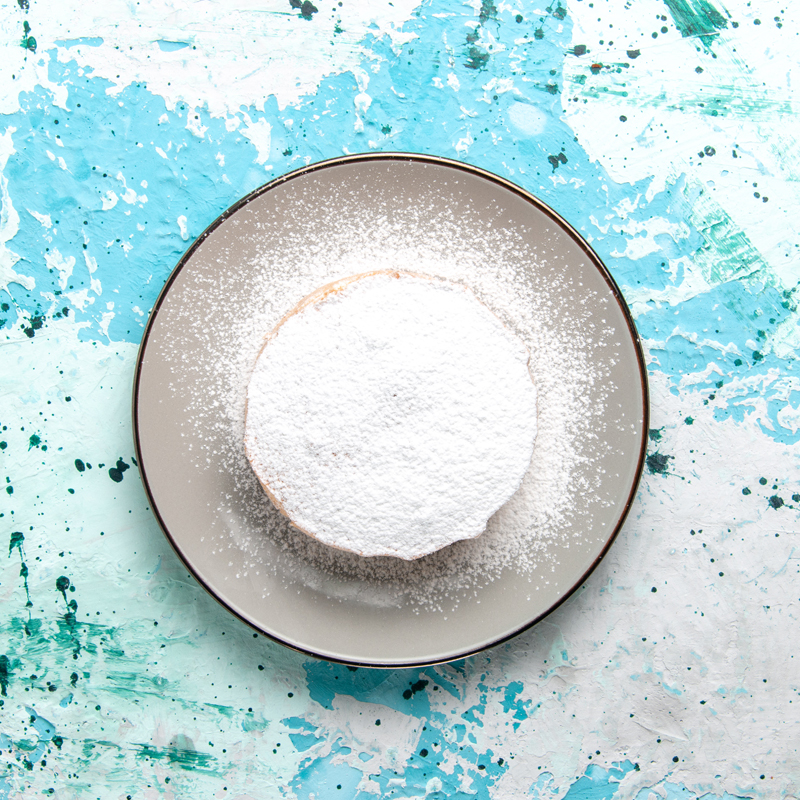
100 gr |
-- |
|
|---|---|---|
| Carbohydrate (gr) | 15.04 |
4928.47 |
| Protein (gr) | 3.59 |
1176.23 |
| Fat (gr) | 12.46 |
4083.43 |
| Fiber (gr) | 1.36 |
445.97 |
| Cholesterol (mg) | 14.64 |
4795.8 |
| Sodium (mg) | 325.27 |
106557.75 |
| Potassium (mg) | 392.16 |
128471.4 |
| Calcium (mg) | 78.15 |
25603.27 |
| Vitamin A (mg) | 46.04 |
15084.01 |
| Vitamin C (mg) | 6.16 |
2019.31 |
| Iron | 0.62 |
203.1 |
Powdered sugar, also known as confectioners’ sugar or icing sugar, is made by finely grinding granulated sugar into a smooth, powdery texture. It is a key ingredient in baking and dessert-making, valued for its ability to dissolve quickly and create smooth, creamy textures. Often mixed with a small amount of cornstarch to prevent clumping, powdered sugar is versatile and essential for many culinary applications.
The calories of ground sugar are 389 calories per 100 grams.
The production process of powdered sugar involves grinding refined granulated sugar into an ultra-fine powder. The result is a soft, fluffy sugar that blends effortlessly into mixtures and toppings.
Powdered sugar is commonly used in baking recipes for its smooth texture and sweetness. Some popular uses include:
Its quick-dissolving nature makes powdered sugar ideal for sweetening cold drinks like lemonade, iced tea, or cocktails, where granulated sugar might not dissolve easily.
Powdered sugar is used to create smooth dessert sauces and syrups, adding sweetness without graininess.
Tip: Store powdered sugar in an airtight container in a cool, dry place to maintain its texture and prevent clumping.
Powdered sugar is a must-have ingredient for anyone who loves baking or making desserts. Its versatility, ease of use, and ability to enhance the texture and appearance of dishes make it a pantry essential. Whether you’re making a rich frosting or simply adding a delicate dusting to your favorite pastries, powdered sugar delivers sweetness and elegance in every use.